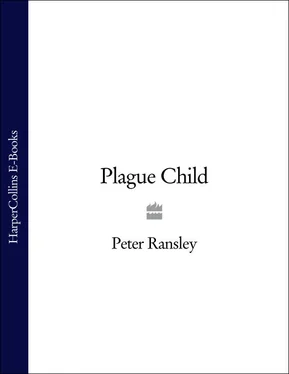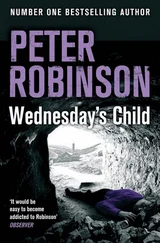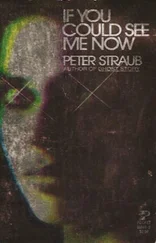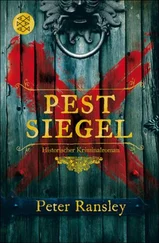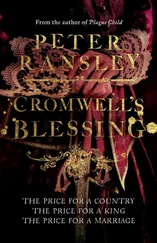PETER RANSLEY
PLAGUE CHILD

Copyright
William Collins
An imprint of HarperCollins Publishers Ltd. 1 London Bridge Street London SE1 9GF
www.harpercollins.co.uk
Copyright © Peter Ransley 2011
Peter Ransley asserts the moral right to be identified as the author of this work
A catalogue record for this book is available from the British Library
This novel is entirely a work of fiction. The names, characters and incidents portrayed in it are the work of the author’s imagination. Any resemblance to actual persons, living or dead, events or localities is entirely coincidental.
All rights reserved under International and Pan-American Copyright Conventions. By payment of the required fees, you have been granted the non-exclusive, non-transferable right to access and read the text of this ebook on-screen. No part of this text may be reproduced, transmitted, down-loaded, decompiled, reverse engineered, or stored in or introduced into any information storage and retrieval system, in any form or by any means, whether electronic or mechanical, now known or hereinafter invented, without the express written permission of HarperCollins ebooks
HarperCollins Publishers has made every reasonable effort to ensure that any picture content or written content in this ebook has been included or removed in accordance with the contractual and technological constraints in operation at the time of publication
Source ISBN: 9780007312351
Ebook Edition © 2011 ISBN: 9780007357208
Version: 2017-09-05
For Cynthia, Nicholas, Imogen, Rebecca and Lochlinn
Contents
Cover
Title Page PETER RANSLEY PLAGUE CHILD
Copyright
Prologue
Part One - At the Half-Moon
Chapter 1
Chapter 2
Chapter 3
Chapter 4
Chapter 5
Chapter 6
Chapter 7
Chapter 8
Chapter 9
Chapter 10
Chapter 11
Chapter 12
Chapter 13
Chapter 14
Chapter 15
Chapter 16
Chapter 17
Chapter 18
Chapter 19
Chapter 20
Chapter 21
Chapter 22
Chapter 23
Chapter 24
Chapter 25
Chapter 26
Part Two - Highpoint
Chapter 27
Chapter 28
Chapter 29
Chapter 30
Chapter 31
Chapter 32
Chapter 33
Chapter 34
Chapter 35
Chapter 36
Chapter 37
Chapter 38
Part Three - Edgehill
Chapter 39
Chapter 40
Chapter 41
Chapter 42
Chapter 43
Chapter 44
Chapter 45
Chapter 46
Keep Reading Конец ознакомительного фрагмента. Текст предоставлен ООО «ЛитРес». Прочитайте эту книгу целиком, купив полную легальную версию на ЛитРес. Безопасно оплатить книгу можно банковской картой Visa, MasterCard, Maestro, со счета мобильного телефона, с платежного терминала, в салоне МТС или Связной, через PayPal, WebMoney, Яндекс.Деньги, QIWI Кошелек, бонусными картами или другим удобным Вам способом.
Historical Note
Acknowledgements
BEHIND THE SCENES
CONSTRUCTION AND CREATION
AN IDEA, LIKE A GHOST
UNOPENED ON A SHELF
About the Author
About the Publisher
Prologue
One cloudy September evening in 1625 Matthew Neave drove the cart, loaded with the bodies he had collected, to the edge of the River Cherwell. Seven bodies: they would not pay him much for that.
While the horses drank he finished off the last of his bread and cheese. The bread was hard and dry and he softened it from his flask of beer as he waited for the light to go. He never went near the plague pit before dark.
In early summer, at the start of the plague in Oxford, relatives would lie in wait for the cart. Fear of the disease was overcome by the fear of hell that their loved ones (and they later) would suffer if they did not get a Christian burial in sanctified ground. Matthew was stabbed and nearly thrown into the pit in one fight before the watch was called.
But as people died or fled, and that remorseless hot summer reduced the remainder to a numb apathy, the disturbances petered out. Nevertheless, when he heard the sound of a galloping horse, Matthew put down his flask. Beer dribbled unnoticed down his stained fustian jacket as he stared over Christchurch Meadow.
He couldn’t make out the rider at first for the trees, but the horse was a black gelding, a gentleman’s horse. The horse cleared the trees. The rider was dressed in black. He was masked, although the day had not been hot. The mask might hold a nosegay of herbs to protect against the plague, but Matthew was taking no chances.
He picked up the knife with which he had cut the cheese and retreated to the cart – the stench of its rotting bodies better protection than any weapon.
The man reined in the horse well short of him.
‘Matthew Neave?’
‘Who wants him?’
The man took off his mask, but kept the herbs it contained to his face. Matthew dropped his knife and pulled off his hat, words drying in his throat. This was no gentleman. The horse was better bred than the man riding it, but for Matthew Mr Ralph was of much more immediate concern than any gentleman.
Mr Ralph was Lord Stonehouse’s steward. A yeoman’s son, he had acquired a small estate in his own right, field by field, the painful struggle to build it showing in the deep seams of his face. The deepest seam was a jagged scar running from his right cheek to his neck.
‘There’s a dead child at Horseborne. Bennet’s farm.’
Several miles away, over Shotover Hill, on the edge of Lord Stonehouse’s estate.
‘A plague child, sir?’
‘Yes.’
Matthew knew this was wrong, knew this was trouble. He had caught the disease when he was six. The agonising black boils under his arms burst and he had survived. They threw the rest of his family in the cart and left him locked in the house alone.
The Plague Orders, no doubt reflecting most people’s conviction that the disease was God’s punishment, specified that victims should be quarantined for forty days and forty nights. For over a month Matthew had been locked in alone, kept alive by the pottage and weak beer passed to him through a window by the only neighbour who would go near him.
Since the few who survived did not catch the plague again, what had nearly killed Matthew now provided him with his bread and, in a plague year like this, meat. Some people thought Matthew a cunning man because it was said he could predict who was going to die of the disease and who was going to live. Perhaps the steward kept his distance now not just because of the bodies, but because he had heard these stories.
Matthew scratched his head. He knew every case for twenty miles around. Someone might have escaped from quarantine, but that was unlikely. It was even less likely that the disease was still spreading. The cold sharpness in the air, the dwindling number of bodies, told him the outbreak was practically over.
Читать дальше
